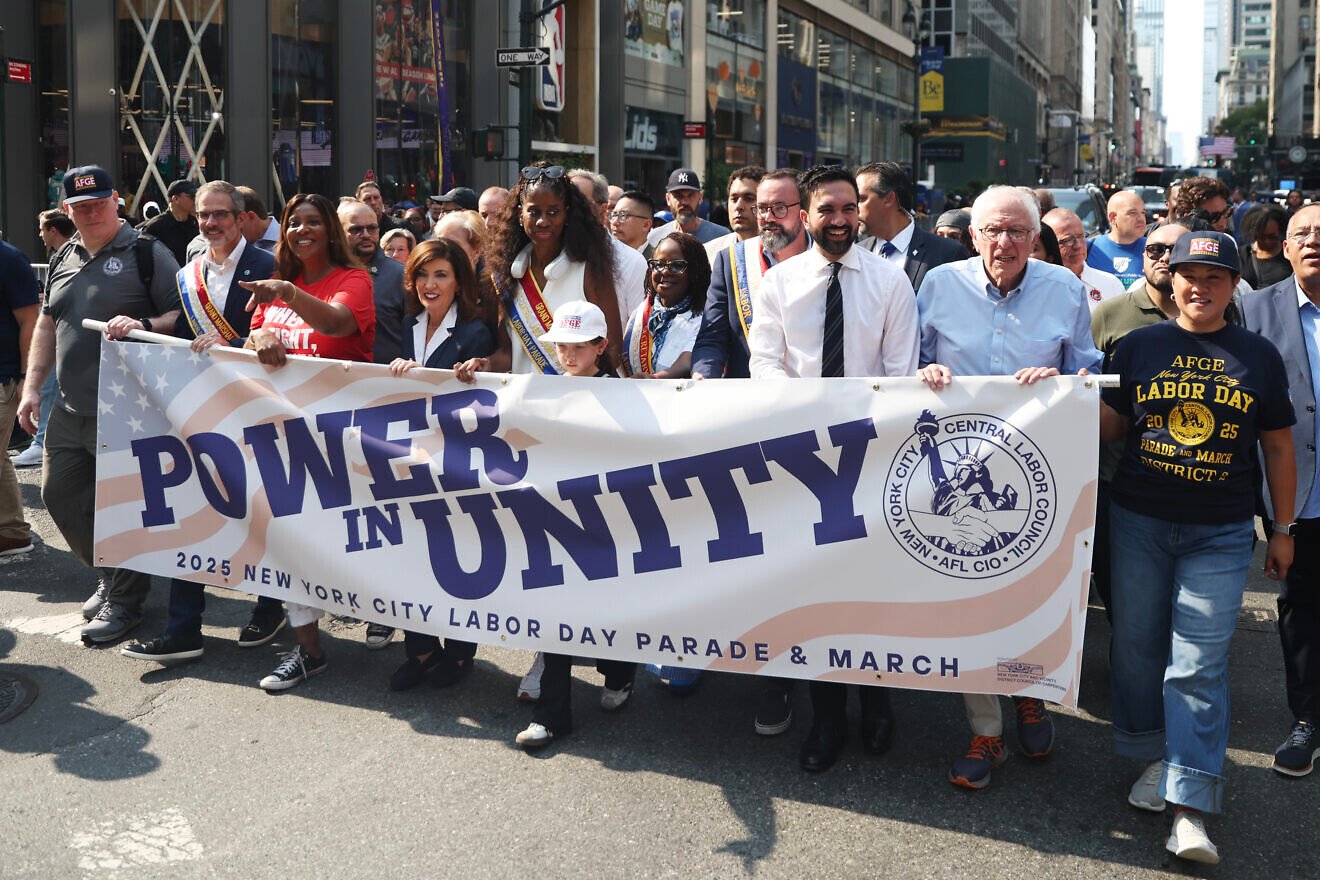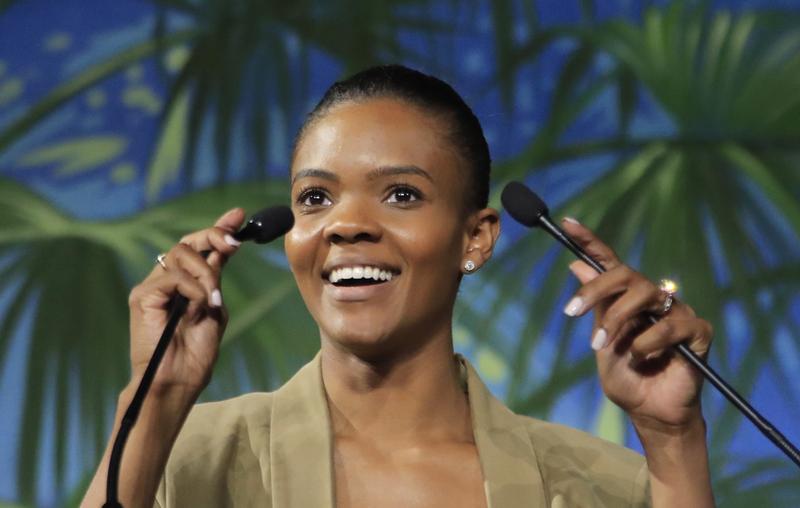The Democrats’ Mamdani dilemma: Is Jew-hatred good politics?
New York Gov. Kathy Hochul thinks backing an antisemitic mayoral candidate will help get her re-elected. Others in the party are wondering and wavering.
By Jonathan S. Tobin
JNS
Sep 18, 2025
Was it a sign of growing confidence that his victory in November was inevitable, or merely just another indication of the strength of his hatred for the State of Israel and the Jews? Perhaps it’s a bit of both. Either way, it’s clear that Zohran Mamdani feels no need to feint to the center or water down his fervent anti-Zionism.
When the Democratic candidate for mayor of New York City promised to have Israeli Prime Minister Benjamin Netanyahu arrested the first time he visits Gotham, it was more than a deliberate provocation aimed at offending pro-Israel voters and most Jews. It was also an indication that he truly believes that doubling down on blood libels about “genocide” is good politics in deep-blue New York.
The question is: Do other Democrats, especially those whose constituencies extend beyond the five boroughs, agree with him?
Kathy’s choice
One person who seems to feel that way is New York Gov. Kathy Hochul, who endorsed Mamdani in a glowing New York Times op-ed published only two days after his empty boast about jailing the Israeli leader, which would be prevented by federal law and possible Republican legislation.
Mamdani didn’t need her endorsement. With or without Hochul’s blessing, he continues to hold a commanding lead of 18.6% over former New York Gov. Andrew Cuomo, his nearest competitor in a four-man race. His three opponents may have more combined support than Mamdani (48.4% to 43.4%). But as long as the trio of Cuomo, current Mayor Eric Adams and Republican nominee Curtis Sliwa refuse to unite behind a single challenger, Mamdani seems to be coasting to an easy plurality victory.
That means that New Yorkers need to brace themselves for four years of the rule of a Socialist extremist whose single-minded support for Israel’s elimination is not something that he thinks he needs to moderate or downplay. Like his threat to Netanyahu, his refusal to even distance himself from antisemitic chants about Jewish genocide and terrorism against Jews—“From the river to the sea” and “Globalize the intifada”—indicates the depth of his ideological commitment to cheerleading for Hamas and jihad against the one Jewish state on the planet.
But Hochul, whose power over the city’s budget gives her the ability to play a pivotal role in limiting the harm that Mamdani can do to the city’s economy and the security of its citizens, has higher priorities than whether New York’s Jewish communities feel safe. She’s up for re-election in 2026 and faces a formidable opponent in Rep. Elise Stefanik (R-N.Y.), the likely Republican nominee for governor, whose national reputation rests in no small part on her zealousness in holding the presidents of elite universities accountable for their toleration and encouragement of antisemitism. To hold off a challenge from a well-funded opponent like Stefanik, she’s going to need a united Democratic Party and the enthusiastic support of its left-wing activist base.
Stefanik waits in the wings

Rep. Elise Stefanik (R-N.Y.) is the likely Republican nominee for governor in 2026.
That’s why—after dithering for nearly three months, and under pressure from pro-Israel and moderate Democrats to keep her distance from him—Hochul decided that she had more to lose by failing to endorse him than the potential backlash against her for aligning herself with an extremist such as Mamdani.
Not everyone agrees with that judgment, and Stefanik probably celebrated Hochul’s decision. The upstate congresswoman likely intends to spend 2026 linking the governor to an antisemitic Socialist. And considering that the GOP results in the last two statewide elections—in 2022 when Hochul’s Republican challenger Lee Zeldin got nearly 46.7% of the vote and in 2024 when President Donald Trump received 43.3%—were their best showings in 20 years, Stefanik has reason for optimism in a state where no member of her party has won a statewide office since 2002.
National Republicans are also viewing the prospect of Mamdani being mayor as a gift to them in the 2026 midterms and perhaps even the 2028 presidential election, even if it is terrible for New York. The White House surely intends to make Mamdani the poster child for the Democrats’ inability to marginalize woke extremists who have linked them to unpopular positions on crime, illegal immigration, gender ideology and Jew-hatred on college campuses.
We’ll see how successful that strategy turns out to be for the GOP. The question that needs asking now is more serious. At stake in the Mamdani race is not merely a matter of who will be running New York City and what policies the winner will pursue. Rather, it’s a test of whether antisemitism is political poison, or—for the first time in living memory in the United States, let alone New York—a successful strategy.
From populist bigots to progressive Jew-haters
Antisemitism is far from unknown in American political history.
In the late 19th and early 20th centuries, populists in the South and Western states who were embittered by the economic plight of farmers embraced conspiracy theories about Jewish bankers. This irrational hate was mixed up with their animus for the people who actually ran Wall Street and major U.S. corporations and cartels, such as J.P. Morgan, John Rockefeller, Andrew Carnegie, Jay Gould, Cornelius Vanderbilt, E.P. Harriman and other Gilded Age “robber barons” who weren’t Jewish.
The faint echoes of that variant of Jew-hatred, which was linked to the racism and anti-Catholic bigotry of the Ku Klux Klan that became a national force in the Democratic Party in the 1910s and 1920s, linger on in the fervid imaginations of both far-right and far-left antisemites. Still, it hasn’t been a serious electoral factor since then.
That’s especially true with respect to New York, where the Jewish vote has been an important factor in determining the outcomes of elections for more than a century.
In recent years, however, as progressives have dominated academia, the arts and popular culture, woke antisemitism rooted in toxic theories about race, intersectionality and settler-colonialism, which falsely label Jews and Israel as “white” oppressors, has come into fashion among elites and the chattering classes.
New York has long been a Democratic Party stronghold, but the city’s politicians, both Jewish and non-Jewish, have taken it as a given that backing for Israel was a political necessity. That was illustrated by the stance of Senate Minority Leader Chuck Schumer, who has spent the last 40 years pretending to be the shomer, or “guardian,” of Israel in Washington despite actually being a less-than-reliable backer of Jerusalem.
The Democratic base
In the not-so-distant past, someone like Mamdani—a chapter president of the openly antisemitic Students for Justice in Palestine in college and who supports the pro-Hamas line about Israel to this day—would simply have been a non-starter as a Democratic nominee for anything in New York City, let alone mayor. But the belief that the existence of the one Jewish state on the planet is a crime and the willingness to buy into Hamas propaganda about “genocide” in Gaza has gained tremendous traction among the activist base of the Democratic Party and, as polls show, rank-and-file Democrats.
Indeed, in a multi-candidate race like the Democratic mayoral primary in June, being the most notorious Israel-basher and cheerleader for the antisemitic mobs rampaging on campuses like Columbia University and New York University may have been something of an asset, since it made it hard for anyone to get to Mamdani’s left.
Were he facing a sole opponent who could be portrayed as a moderate and a supporter of Israel, Mamdani’s extremism might have been a problem in the general election. But with the anti-Mamdani vote split three ways and with the Democrats’ leftist base that hates Israel energized to turn out to support the young and charismatic candidate, he seems headed for certain victory.
Leaving aside the mayoral race, the willingness of Hochul and a host of other national Democrats who may be liberal but not as far to the left as Rep. Alexandria Ocasio-Cortez (D-N.Y.) or Sen. Bernie Sanders (I-Vt.), who are enthusiastic supporters of their fellow Socialist, to back Mamdani is an ominous development. It’s true that the Democrats’ congressional caucus leaders, Schumer and House Minority Leader Rep. Hakeem Jeffries, have so far refrained from endorsing Mamdani. Others, such as Sen. Chris Van Hollen (D-Md.) and even Jews such as Rep. Jamie Raskin (D-Md.), have jumped on the Mamdani bandwagon.
In the current hyper-partisan political environment, leading politicians in both parties have come to the conclusion that securing the base is more important than chasing after the declining portion of the electorate that can be considered swing voters who are up for grabs.
This is a time when the liberal media is mainstreaming Hamas propaganda and progressive thought leaders are rationalizing antisemitism as a reasonable reaction to Israel’s efforts to eradicate Hamas following the Palestinian terrorist attacks in southern Israel on Oct. 7, 2023. That means Mamdani’s antisemitism is not only no longer disqualifying but might, in certain contexts, help him win.
A Mayor Mamdani could help Republicans tar all of their opponents as nothing more than a bunch of far-left-supporting extremists—something that isn’t going to do any good for Democrats in the midterms next year or in 2028. But as influential Democrats demonstrate that they are more afraid of offending the party’s left-wing base that loves him and others who share his point of view, like AOC, the most serious and far-reaching consequence of Mamdani’s rise may be to remove the stigma from politicians who are antisemitic or supportive of those who are Jew-haters.
Whither the GOP?

Nor should we ignore the possibility that this troubling trend might influence future Republican races. Israel-hating and antisemitic political commentators like former Fox News host Tucker Carlson and Candace Owens retain large followings, despite abundant evidence of their extremism and their opposition to Trump’s pro-Israel policies. That means there is a chance that the race to succeed the president might include a candidate who has much in common with the left on Israel and antisemitism.
The normalization of Jew-hatred is no longer the issue in New York and the Democratic Party. The question to ask is whether it will soon be seen in the same way as it was in late 19th-and early 20th-century Europe—something ambitious would-be officeholders consider good politics.


No comments:
Post a Comment